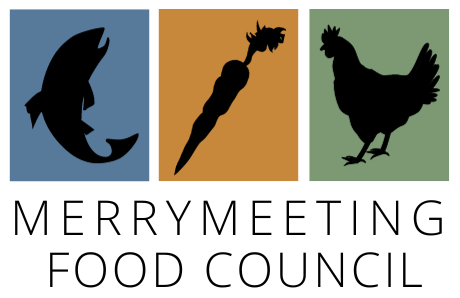Update from Biodynamic Talk and Workshop sponsored by Maine Coast Waldorf School, The Resilience Hub and the Biodynamic Association.
Climate, Carbon & Compost: How Biodynamic Gardening & Land Stewardship Can Help Us Embrace an Uncertain Future, was the topic of a public talk on October 4, presented by Thea Maria Carlson, Executive Director of the Biodynamic Association in this country. The next day, a hands-on workshop created a compost pile using six biodynamic compost preparations to enliven the soil, hold carbon and help restore balance to the climate.
At the evening talk, Thea described her experience of working in the rainforest in 2001, as a student in Earth Systems at Stanford University. She witnessed first-hand the burning of the forest to develop agricultural land. This experience led her to farming, gardening, nutrition, education and her dedication to building living soil, growing nutritious food and nurturing vibrant communities.
Carbon has been demonized in our minds due to climate change, but carbon is the basis of all life. Fossil fuels used to be plants and animals. Our responsibility is to bring carbon back into balance. The impact of industrial agriculture and food choices that create more and more demand for beef and field crops to support feedlots have been major contributors to this imbalance.
Biodynamics uses a holistic and ecological approach to gardening and nutrition. This renewal started in 1924, when a group of farmers in Europe approached Rudolph Steiner, philosopher and scientist, out of their grave concerns over the rapid deterioration of soil health. Ninety five years later, there are Biodynamic Farms all over the world, including over 100,000 in India!
The recognition of spirit in nature is the foundation for the principles and practices of Biodynamics. They include the following:
The farm/garden is a living organism made up of many interdependent elements: fields, forests, plants, animals, soils, compost, people, and the spirit of the place.
The cultivation of biodiversity, inspired by natural ecosystems, and landscape, include plants and animals, amplifying the health and resilience of the farm organism through generating on-farm fertility.
Compost is enlivened with Biodynamic preparations. These medicinal herbs stabilize nitrogen and other nutrients, increasing microbial diversity. This process also brings more carbon into the soil, helping to restore balance to the climate.
Biodynamic sprays are used to enhance soil and plant health providing greater resilience to pests, diseases and extreme climate conditions.
Biodynamics works in rhythm with the earth and the cosmos, using detailed astronomical information and indications of optimal times for sowing, transplanting, cultivating, harvesting and using the BD preparations.
Biodynamics is not a fixed recipe or prescription. Cultivating awareness strengthens our ability to work creatively with the dynamics of the land and wider bio-region, and to bring the vibrancy of the farm organism to full expression.
From Notes compiled by Christine Sloan. More at info@biodynamics.com
